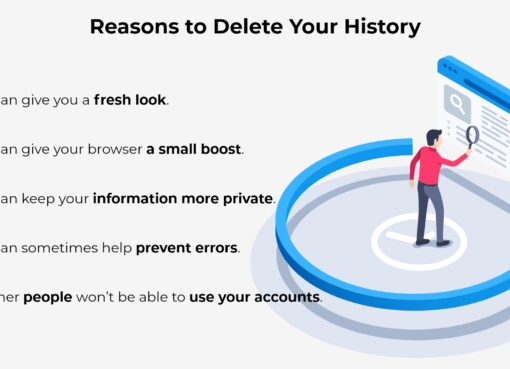Are you struggling to lose belly fat? You’re not alone. Belly fat, also known as visceral fat, is not just a cosmetic concern—it’s also associated with increased risk of various health conditions, including heart disease, type 2 diabetes, and certain cancers. Fortunately, there are science-backed strategies that can help you shed those stubborn pounds around your midsection and improve your overall health.
In this comprehensive guide, we’ll explore 18 effective tips to help you lose belly fat, all backed by scientific evidence. From dietary changes and exercise recommendations to lifestyle adjustments and stress management techniques, we’ll cover everything you need to know to kickstart your journey towards a slimmer waistline and a healthier you. Whether you’re looking to flatten your belly for aesthetic reasons or to improve your overall health and well-being, these tips will provide you with the knowledge and tools you need to achieve your weight loss goals. So, let’s dive in and discover how to say goodbye to belly fat for good.
1. Eat plenty of soluble fiber:
Soluble fiber forms a gel-like substance in the digestive tract, which helps slow digestion and promotes feelings of fullness. This can lead to reduced calorie intake and ultimately support weight loss. Sources of soluble fiber include oats, legumes, Brussels sprouts, and flaxseeds. Incorporating these foods into your diet can help you increase your fiber intake and aid in belly fat reduction.
Excellent sources of soluble fiber include (6Trusted Source):
- fruits
- vegetables
- legumes
- oats
- barley
- Fact: Soluble fiber has been shown to slow down the digestion process, leading to increased feelings of fullness and reduced calorie intake.
- Statistic: A study published in the Annals of Internal Medicine found that for every 10-gram increase in soluble fiber intake per day, visceral fat (belly fat) was reduced by 3.7% over five years.
2. Avoid foods that contain trans fats:
Trans fats, found in processed foods, fried foods, and certain margarine products, are known to increase belly fat and pose significant health risks such as heart disease. These artificial fats elevate LDL cholesterol levels, lower HDL cholesterol, promote inflammation, and contribute to insulin resistance, all of which can lead to abdominal obesity and metabolic disorders. By avoiding sources of trans fats and opting for healthier alternatives like olive oil, avocados, and nuts, individuals can support their weight loss efforts and improve overall health. Healthier fats not only reduce calorie intake but also offer benefits such as improved heart health, better metabolic function, and enhanced weight loss.
Choosing whole, minimally processed foods rich in monounsaturated and polyunsaturated fats provides essential nutrients, fiber, and antioxidants, while helping to control appetite and prevent overeating. In summary, eliminating trans fats from the diet and incorporating healthier fat alternatives is a crucial step towards reducing belly fat, managing weight, and mitigating the risk of chronic diseases associated with trans fat consumption.
- Fact: Trans fats are known to increase the risk of heart disease and promote belly fat accumulation.
- Statistic: According to the American Heart Association, replacing trans fats with healthier fats could prevent up to 228,000 heart attacks and 50,000 deaths annually in the United States.
3. Moderate your alcohol intake:
Alcohol is high in calories and can contribute to weight gain, particularly around the belly area. While moderate alcohol consumption may have some health benefits, excessive intake can sabotage your weight loss goals. Limiting your alcohol intake to moderate levels and choosing lower-calorie options such as wine or spirits mixed with soda water can help you manage your weight more effectively.
By moderating alcohol consumption and opting for lower-calorie options, individuals can not only manage their weight more effectively but also reduce the risk of developing health problems associated with excessive alcohol intake, such as liver disease and certain cancers. Prioritizing mindful drinking habits supports overall well-being and complements efforts to achieve and maintain a healthy weight.
- Fact: Alcohol is calorie-dense and can contribute to weight gain, especially around the abdomen.
- Statistic: Research published in the American Journal of Clinical Nutrition found that excessive alcohol consumption is associated with abdominal obesity in men.
4. Eat a high-protein diet:
Protein is essential for building and repairing tissues, including muscles. A high-protein diet can help you feel full for longer, reduce cravings, and boost metabolism, all of which can support weight loss and belly fat reduction. Include sources of protein such as lean meats, poultry, fish, tofu, and legumes in your meals to help you meet your protein needs and achieve your weight loss goals.
protein has a higher thermic effect compared to carbohydrates and fats, meaning that the body expends more energy digesting and metabolizing protein. This can contribute to increased calorie expenditure and further support weight loss efforts. Additionally, incorporating protein-rich foods into meals promotes muscle preservation during weight loss, helping to maintain metabolic rate and improve body composition over time.
Be sure to include a good protein source at every meal, such as:
- meat
- fish
- eggs
- dairy
- whey protein
- beans
- Fact: Protein helps increase satiety, reduce cravings, and boost metabolism, aiding in weight loss and fat reduction.
- Statistic: A study published in Nutrition & Metabolism reported that a high-protein diet led to significant reductions in body weight and abdominal fat compared to a standard-protein diet.
5. Reduce your stress levels:
Chronic stress can lead to weight gain, especially around the abdomen, due to increased cortisol levels. Managing stress through techniques such as meditation, deep breathing exercises, yoga, or spending time outdoors can help reduce cortisol levels and support weight loss efforts. Prioritizing stress management as part of your overall wellness routine can contribute to a healthier body and mind.
Chronic stress often triggers emotional eating or unhealthy coping mechanisms, leading to further weight gain. By prioritizing stress management techniques, individuals not only reduce the physiological effects of stress but also cultivate healthier habits and coping strategies, promoting long-term weight maintenance and overall well-being.
- Fact: Chronic stress can lead to weight gain, particularly around the abdomen, due to increased cortisol levels.
- Statistic: Research published in Obesity Reviews suggests that stress-induced cortisol secretion may contribute to abdominal obesity.
6. Don’t eat a lot of sugary foods:
Foods high in added sugars can contribute to belly fat accumulation and increase the risk of chronic diseases such as diabetes and heart disease. By limiting your intake of sugary snacks, desserts, and sweetened beverages, you can reduce your overall calorie intake and support weight loss. Opt for whole foods and natural sweeteners such as fruit to satisfy your sweet tooth while minimizing added sugars in your diet.
- Fact: Foods high in added sugars can contribute to belly fat accumulation and increase the risk of chronic diseases.
- Statistic: A study published in Circulation found that higher consumption of sugar-sweetened beverages was associated with a greater degree of visceral adiposity (belly fat).
7. Do aerobic exercise (cardio):
Aerobic exercise, also known as cardio, is a great way to burn calories and reduce belly fat. Activities such as walking, running, cycling, or swimming can help elevate your heart rate and increase calorie expenditure. Aim for at least 30 minutes of moderate-intensity aerobic exercise most days of the week to see results and support your weight loss goals.
- Fact: Aerobic exercise helps burn calories and reduce belly fat effectively.
- Statistic: Research published in the Journal of Applied Physiology found that aerobic exercise significantly reduced abdominal fat in obese individuals.
8. Cut back on carbs — especially refined carbs:
Reducing your intake of refined carbohydrates such as white bread, pasta, and sugary snacks can help decrease belly fat and improve overall health. These foods are quickly digested and can cause spikes in blood sugar levels, leading to increased fat storage, particularly around the abdomen. Focus on whole grains, fruits, vegetables, and legumes instead to support weight loss and stabilize blood sugar levels.
- Fact: Refined carbohydrates can lead to spikes in blood sugar levels, promoting fat storage around the abdomen.
- Statistic: A study published in The American Journal of Clinical Nutrition found that reducing carbohydrate intake was more effective in reducing abdominal fat than a low-fat diet.
9. Perform resistance training (lift weights):
Resistance training helps build lean muscle mass, which can increase metabolism and promote fat loss, including belly fat. Incorporating exercises such as squats, lunges, deadlifts, and push-ups into your workout routine can help you build strength and tone your body. Aim to include resistance training exercises at least two to three times a week to maximize your weight loss results and improve overall body composition.
- Fact: Resistance training helps build lean muscle mass, increasing metabolism and promoting fat loss.
- Statistic: A study published in Obesity found that resistance training significantly reduced abdominal fat mass and waist circumference in obese older adults.
10. Limit sugar-sweetened beverages:
Sugar-sweetened beverages are high in calories and can contribute to weight gain, particularly around the abdomen. By limiting your intake of sugary drinks such as soda, sweetened tea, and fruit juice, you can reduce your overall calorie intake and support your weight loss efforts. Opt for water, herbal tea, or sparkling water with a splash of fruit juice as healthier alternatives to quench your thirst without adding extra calories.
To lose belly fat, it’s best to limit your intake of sugar-sweetened beverages such as:
- soda
- punch
- sweet tea
- alcohol mixers containing sugar
For vegans, vegetarians, and those who don’t regularly consume fish, plant-based omega-3 supplements derived from sources like algae are also available.
- Fact: Sugar-sweetened beverages are calorie-dense and can contribute to weight gain, particularly around the abdomen.
- Statistic: Research published in the American Journal of Clinical Nutrition found that higher consumption of sugar-sweetened beverages was associated with greater visceral adiposity.
11. Get plenty of restful sleep:
Poor sleep quality and duration have been linked to weight gain and increased belly fat. Aim for 7-9 hours of restful sleep per night to support weight loss and overall health. Establishing a regular sleep schedule, creating a relaxing bedtime routine, and optimizing your sleep environment can help improve sleep quality and promote belly fat reduction.
- Fact: Poor sleep quality and duration have been linked to weight gain and increased belly fat.
- Statistic: A study published in the American Journal of Clinical Nutrition found that short sleep duration was associated with a higher risk of abdominal obesity.
12. Track your food intake and exercise:
Keeping track of your daily food intake and exercise habits can help you identify areas for improvement and stay accountable to your weight loss goals. Use a food diary or mobile app to track your meals, snacks, and exercise sessions, as well as your progress towards your weight loss goals. By monitoring your behavior and progress over time, you can make adjustments as needed and stay on track with your weight loss journey.
- Fact: Keeping track of food intake and exercise habits can help identify areas for improvement and stay accountable to weight loss goals.
- Statistic: A study published in the Journal of the Academy of Nutrition and Dietetics found that self-monitoring of diet and physical activity was associated with greater weight loss success.
13. Eat fatty fish every week:
Fatty fish such as salmon, mackerel, and sardines are rich in omega-3 fatty acids, which have been shown to reduce belly fat and improve metabolic health. Aim to include fatty fish in your diet at least twice a week to reap the benefits of these heart-healthy fats. You can enjoy grilled or baked fish as a main dish or incorporate canned fish into salads, sandwiches, or wraps for a convenient and nutritious meal option.
- Fact: Fatty fish are rich in omega-3 fatty acids, which have been shown to reduce belly fat and improve metabolic health.
- Statistic: Research published in Lipids in Health and Disease found that omega-3 fatty acids supplementation led to significant reductions in abdominal fat mass.
14. Limit consumption of fruit juice:
While fruit juice may seem like a healthy choice, it is often high in sugar and calories and lacks the fiber found in whole fruits. Limit your consumption of fruit juice and opt for whole fruits instead to reduce your overall calorie intake and support weight loss. Whole fruits provide essential vitamins, minerals, and fiber, making them a healthier and more filling option for satisfying your sweet cravings.
- Fact: Fruit juice is high in sugar and calories, lacking the fiber found in whole fruits.
- Statistic: A study published in BMJ Open found that higher consumption of fruit juice was associated with increased central obesity and insulin resistance.
15. Eat probiotic foods or take a probiotic supplement:
Probiotics are beneficial bacteria that can help improve gut health and promote weight loss. Include probiotic-rich foods such as yogurt, kefir, sauerkraut, and kimchi in your diet to support a healthy gut microbiome and enhance your weight loss efforts. Alternatively, you can take a probiotic supplement to ensure you’re getting an adequate amount of beneficial bacteria to support digestion and overall health.
- Fact: Probiotics can improve gut health and promote weight loss.
- Statistic: A meta-analysis published in Obesity Reviews concluded that probiotic supplementation significantly reduced body weight and fat percentage.
16. Consider intermittent fasting:
Intermittent fasting involves cycling between periods of eating and fasting and is effective for weight loss, including belly fat. Experiment with different fasting protocols such as the 16/8 method, where you fast for 16 hours and eat within an 8-hour window, or the 5:2 method, where you eat normally for five days and restrict calories on two non-consecutive days. Find a fasting schedule that works for you and consult with a healthcare professional before starting any fasting regimen.
- Fact: Intermittent fasting is effective for weight loss, including belly fat reduction.
- Statistic: A systematic review and meta-analysis published in Obesity Reviews found that intermittent fasting resulted in significant reductions in body weight and fat mass.
17. Drink green tea:
Green tea contains catechins, antioxidants that have been shown to increase metabolism and promote fat burning, including belly fat. Enjoying green tea regularly as part of a healthy diet and lifestyle can help support your weight loss goals and improve overall health. You can drink green tea hot or cold, plain or flavored, to suit your preferences and reap the benefits of its metabolism-boosting properties.
- Fact: Green tea contains catechins that increase metabolism and promote fat burning, including belly fat.
- Statistic: A meta-analysis published in The Cochrane Database of Systematic Reviews concluded that green tea consumption significantly reduced body weight and waist circumference.
18. Change your lifestyle and combine different methods:
Losing belly fat requires a holistic approach that includes healthy eating, regular exercise, stress management, and adequate sleep. By adopting sustainable lifestyle changes and combining different weight loss strategies, you can achieve long-term success in reducing belly fat and improving overall health. Focus on making gradual, sustainable changes to your diet and lifestyle, and be patient with yourself as you work towards your weight loss goals. With dedication and consistency, you can achieve a healthier body and a happier, more confident you.
- Fact: Sustainable lifestyle changes, including healthy eating and regular exercise, are crucial for long-term belly fat reduction.
- Statistic: A study published in the International Journal of Obesity found that lifestyle interventions combining diet, exercise, and behavioral strategies were effective in reducing abdominal obesity.
Wrap-Up:
In summary, losing belly fat requires a holistic approach that combines dietary changes, exercise, stress management, and lifestyle adjustments. By implementing the science-backed tips outlined in this guide, you can make significant progress toward achieving your weight loss goals and improving your overall health. Remember to stay consistent, prioritize your well-being, and celebrate your successes along the way. With dedication and perseverance, you can say goodbye to belly fat and hello to a healthier, happier you.
FAQs
- Can I target belly fat specifically?
No, spot-reducing fat from specific areas isn’t possible. However, overall fat loss through healthy habits can lead to a slimmer waistline. - How long until I see results?
Results vary, but noticeable changes typically take weeks to months of consistent effort. Patience and commitment are key. - Are there specific foods to target belly fat?
While no magic foods exist, a diet rich in soluble fiber, protein, and healthy fats supports overall weight loss, including belly fat reduction. - Does stress affect belly fat accumulation?
Yes, chronic stress raises cortisol levels, contributing to abdominal weight gain. Managing stress through various techniques aids in weight loss efforts.
- How Does Automated Scheduling Save Time and Boost Engagement? - April 16, 2025
- 21 Delicious High Protein Foods - May 31, 2024
- Black Seed Oil: Health and Beauty Benefits - May 30, 2024




